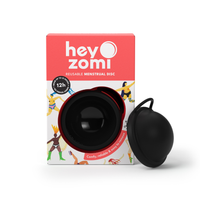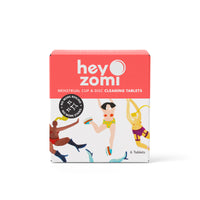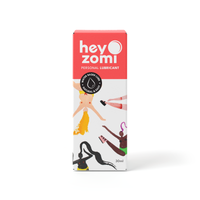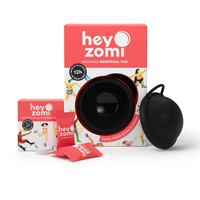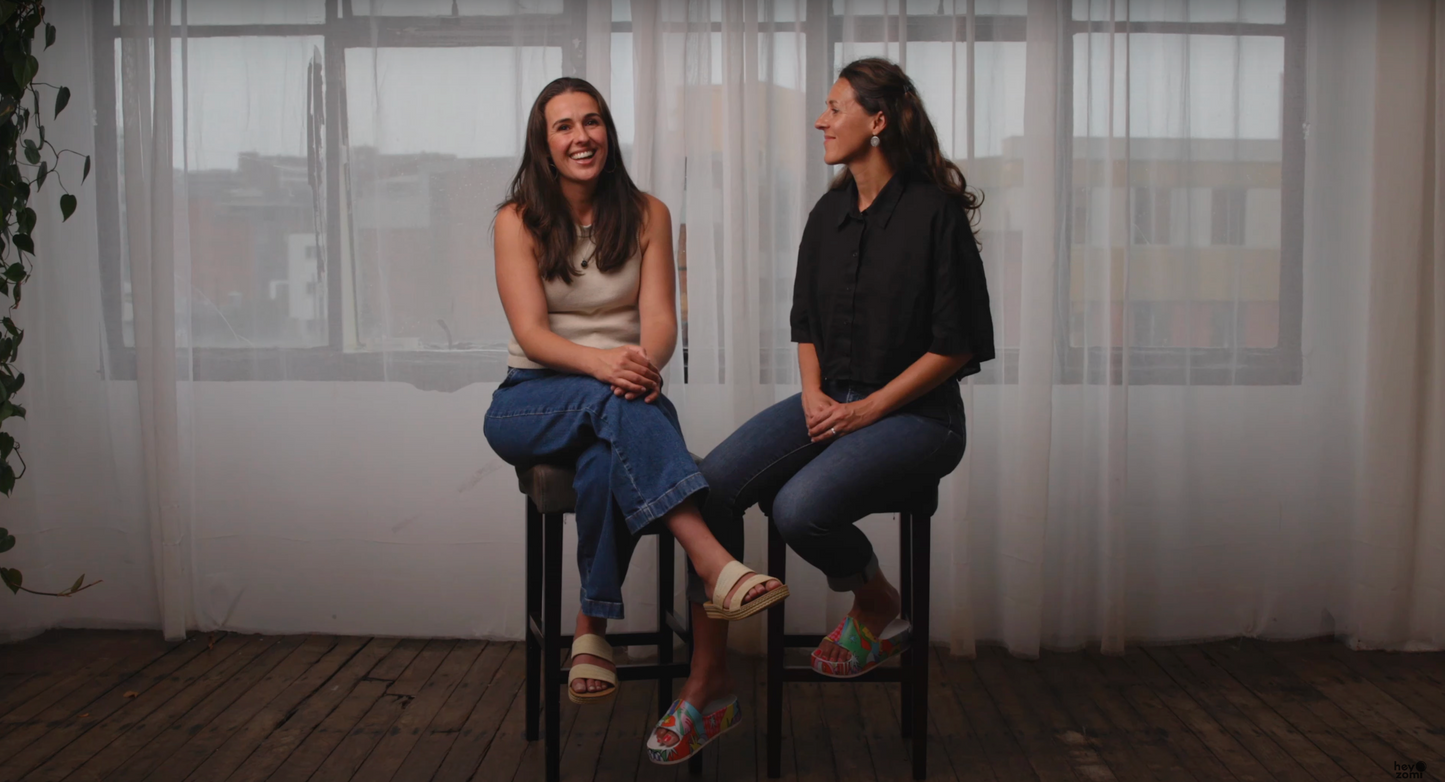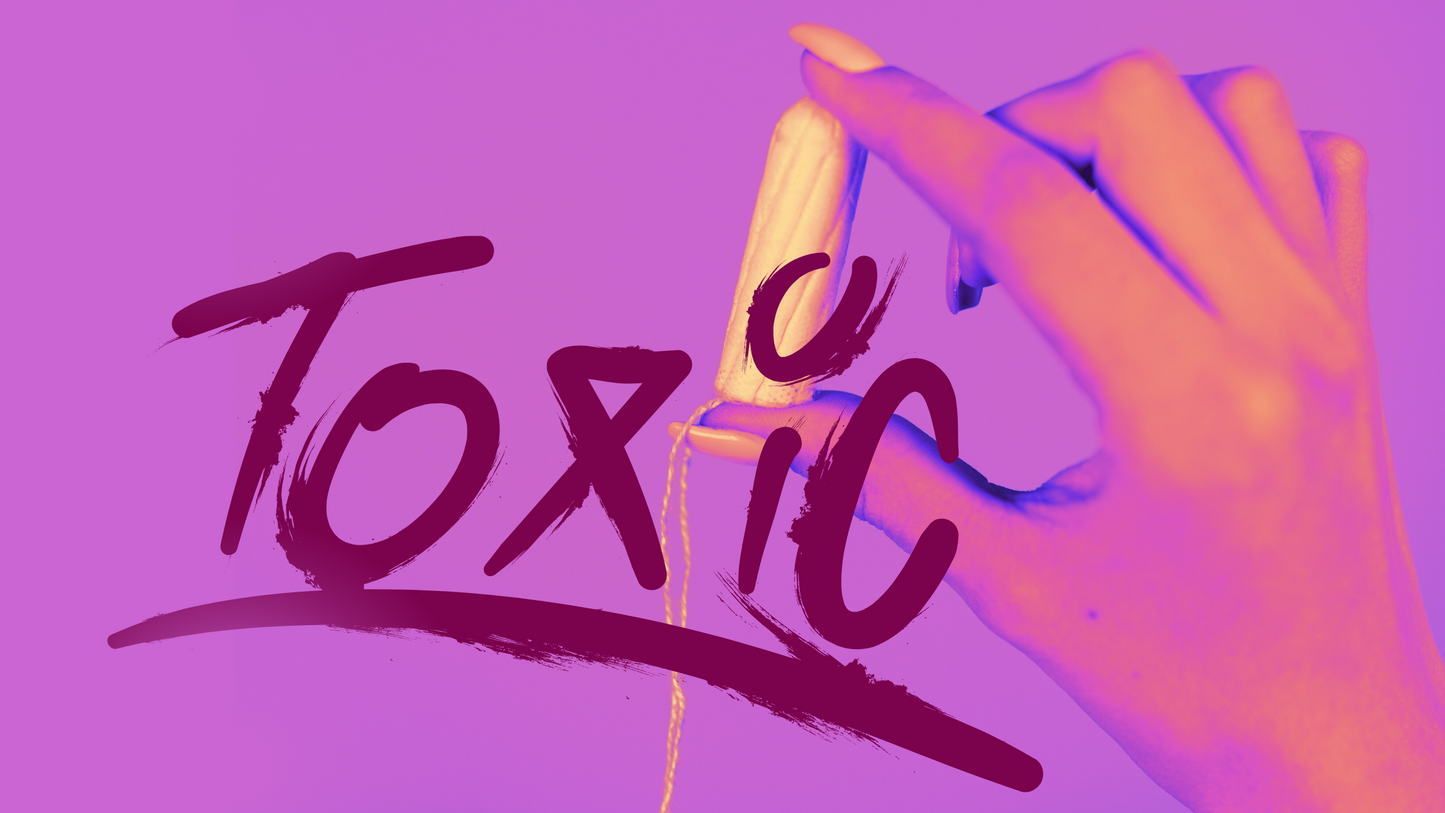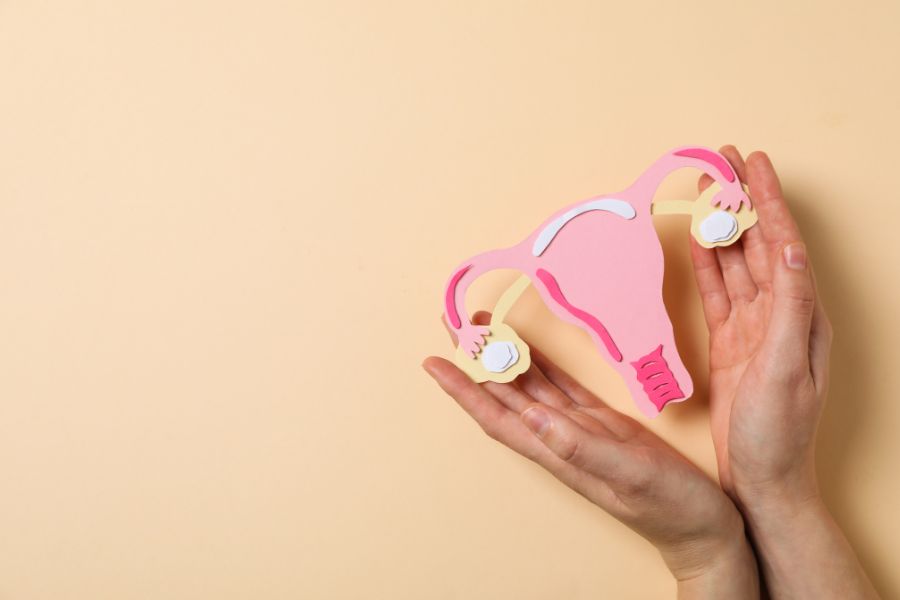
Your first period after having kids can feel unfamiliar. Your body has done something incredible - and things might feel and work a little differently now. If you’re wondering about using a menstrual disc postpartum, here’s what to know.
What to expect when your period comes back
After giving birth, it’s common for periods to be heavier or irregular for some time. Hormonal shifts, especially if you’re breastfeeding, could also cause vaginal dryness.
How your body can change after birth
Your vagina can change after giving birth. The cervix can sit lower or at a new angle, and your pelvic floor muscles might feel weaker for a while. If you have experienced tearing or stitches during delivery, scar tissue may still be healing for weeks or months, which can make the vaginal area more sensitive.
You may also notice that your pubic bone feels less pronounced - especially if you’ve had multiple births. This is normal and happens because the tissues and bones supporting your pelvic area stretch and shift during pregnancy and birth. These subtle changes can affect how internal products like tampons, period cups and menstrual discs sit or feel.
Some people may also notice a feeling of heaviness or thickness inside the vagina, which could indicate that prolapse has occurred. We highly recommend booking in with your local pelvic physiotherapist. A pelvic physiotherapist (or pelvic floor physio) plays a vital role in postpartum care, especially when it comes to helping women use internal products like menstrual discs, tampons, or menstrual cups comfortably and safely. Many women also seek help, because intercourse postpartum can also be a whole different game physically.
Here’s what they typically do in that context:
Postpartum pelvic floor assessment
They assess the strength, tone, and coordination of the pelvic floor muscles - which can be stretched, weakened or damaged during pregnancy or childbirth. This includes checking for:
- Pelvic organ prolapse
- Tearing or scar tissue
- Vaginal tightness or laxity
- Pain or discomfort with insertion
Support with internal product use
They support women experiencing:
- Discomfort or pain with insertion/removal
- A feeling of pressure of a period cup "pushing down"
- Difficulty keeping a period cup or menstrual disc in place
- Fear or anxiety about using internal products after birth
For menstrual discs and other internal products, they help:
- Educate on vaginal anatomy, so you know where the disc sits (in the vaginal fornix, right under the cervix)
- Check for barriers to comfortable use, like muscle tension, prolapse, or sensitivity
- Teach how to insert and remove internal products with less discomfort or pressure
- Provide exercises or manual therapy to improve pelvic mobility and comfort
Postpartum bodies are changing, and what used to work may not feel the same anymore. Pelvic physios help you understand your body, restore confidence, and make internal period care - like using a Hey Zomi disc - feel empowering, not intimidating.
Why a menstrual disc can feel gentler
No suction: Unlike a period cup, a disc doesn’t rely on suction. There’s less pressure on tender or healing tissues.
Soft and flexible: The Hey Zomi disc is soft and flexible enough to adjust with your body. This can make for a more comfortable fit if things feel more sensitive than before.
Pairs well with water-based lube: Vaginal dryness is common postpartum. Using a gentle, body-safe water-based lubricant can help the disc glide into place comfortably - especially helpful if there’s scar tissue or if things feel tight.
High capacity: Postpartum bleeding can be heavier or unpredictable. A menstrual disc holds the equivalent of 4-5 tampons or pads, so you are fully covered when juggling life with your baby or toddlers. You can also semi-empty your disc without fully removing it - a game changer on those heavier days - read more on that here.
Always check with your healthcare professional, doctor or gynaecologist before using internal products after birth.
Tips for using a disc after kids
✔ Check with your doctor - they’ll guide you on when it’s safe to use internal products again (usually after your 6-week check).
✔ Start slow - practise on a lighter day or when you’re feeling relaxed.
✔ Use a good water-based lube - it can make insertion easier and gentler. Try Hey Zomi's Lube.
✔ Support your pelvic floor - gentle pelvic floor exercises can help with fit and comfort . It is always recommended to ask your pelvic physio or doctor on which exercises they recommend. All our pelvic floor and vaginas are so different postpartum. It is always good to check what types of exercises are suitable for you. See more on this from Jean Hailes Women's Health Website
✔ Pair your disc with period undies - this gives you more peace of mind when lady flow is unpredictable.
✔ Listen to your body - if anything feels off, pause and check in with a trusted health professional.
FAQ: menstrual discs after kids
When can I use a menstrual disc after giving birth?
Most people wait until after their 6-week postnatal check-up, but always check with your doctor.
Is a menstrual disc safe if I had stitches or tearing?
Once fully healed, yes. A soft, suction-free menstrual disc can be more comfortable than other internal products. Use plenty of gentle water-based lube if needed.
Will a menstrual disc feel different after birth?
It might - your cervix can sit lower and your pelvic floor muscles may change how the disc fits. Speak to your pelvic physio or doctor if something feels odd or uncomfortable. While pelvic floor exercises may help, something more could be going on and it is always great to have a check in so the products you love- like your hey zomi disc - continue to work well with your body.
Can a menstrual disc work for heavier postpartum periods?
Yes! Discs hold more than cups, tampons or pads - ideal for waterfall days or unpredictable flows. You can also semi-empty your disc without fully removing it, helping manage heavier periods.
Every postpartum period is different
That’s why we designed our menstrual disc to be soft, flexible and work with your body and flow. We’re always here to help you feel confident and supported, one cycle at a time.
If you have questions, reach out to us anytime via chat or email - our team is always ready to help.
References:
Pregnancy, Birth and Baby - periods after pregnancy
Health Direct - vaginal dryness
Jean Hailes - vaginal tears and episiotomy
Royal Women’s Hospital - perineal tears (3rd and 4th degree)
